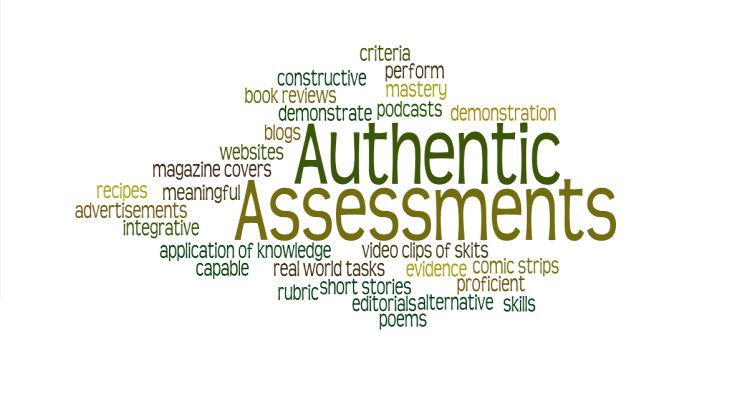 An authentic assessment is a type of evaluation that requires students to provide solutions to real-life situations based on their knowledge and critical thinking skills. These tests are heavily based on problem-solving skills and are usually rooted in a topic that students have previously been taught. A common form of authentic assessment is oral testing which puts students in a ‘hot seat’ situation, where they have to rely on their residual knowledge and cleverness to solve problems on the spot. It can also be used for school ratings.
An authentic assessment is a type of evaluation that requires students to provide solutions to real-life situations based on their knowledge and critical thinking skills. These tests are heavily based on problem-solving skills and are usually rooted in a topic that students have previously been taught. A common form of authentic assessment is oral testing which puts students in a ‘hot seat’ situation, where they have to rely on their residual knowledge and cleverness to solve problems on the spot. It can also be used for school ratings.
Authentic assessment tests integrate content that has already been studied and evaluate a student’s ability to use that knowledge in a real-world situation. Other common forms of authentic assessment include portfolios, which are used to document a student’s learning progress over time and are used as tools to generate consistent and organized feedback. Some additional types of authentic assessment include debating, role-playing, etc.
Thus, broadly speaking, authentic assessments can be of two types – assessments that require students to participate in real-life scenarios in their subject, and realistic evaluations that have a natural relevance but engage students in situations that imitate the real world (for instance, a case study). Before conducting such assessments, teachers teach their students how to “do” the subjects – be it history, math, science, etc., and not just know them. This will be a social media site for teachers. Next, to evaluate what their students had learned, they can ask students to execute tasks that “imitate the challenges” faced by those doing, for instance, historical survey, mathematics, or performing scientific investigation.
Some may wonder what makes an assessment authentic. Here are the main criteria:
- It’s realistic
- It requires the students to “do” what they have learned
- It involves innovation and judgment
- It simulates or replicates the contexts in which the students are tested
- It examines the student’s ability to effectively and competently use a range of skills and knowledge to complete a complex task
- It allows suitable opportunities to practice, rehearse, consult resources, and obtain feedback on and improve performance
Oral tests and essays are the best types of assessment for testing high-level knowledge, critical thinking, and problem-solving skills. First, teachers should consider the type of knowledge they want to test. This should be followed by designing an assessment that’s most appropriate for their students and the curriculum.
With authentic assessments, students get the opportunity to test their knowledge and skills in new and real-life situations. This will help them get ready to be assessed in their professional lives and even show them how relevant their course’s content is outside the classroom.
Conclusion
Teachers shouldn’t forget that the students’ hesitance to answer questions may stem from shyness, not understanding the topic, lack of confidence, etc. They can mold such a situation by rephrasing the question or asking another student to help out. Formative assessment can be peer-led, tutor-led, or involve self-assessment.
Since such assessments have low stakes and usually carry no or low point value or grade, they may, in some instances, put off the students from performing the task or engaging with it completely. Yet, this mode of assessment can support students to become self-directed learners. Additionally, it enables teachers to get evidence of student learning and make the necessary adjustments to help them achieve the intended learning outcomes.










